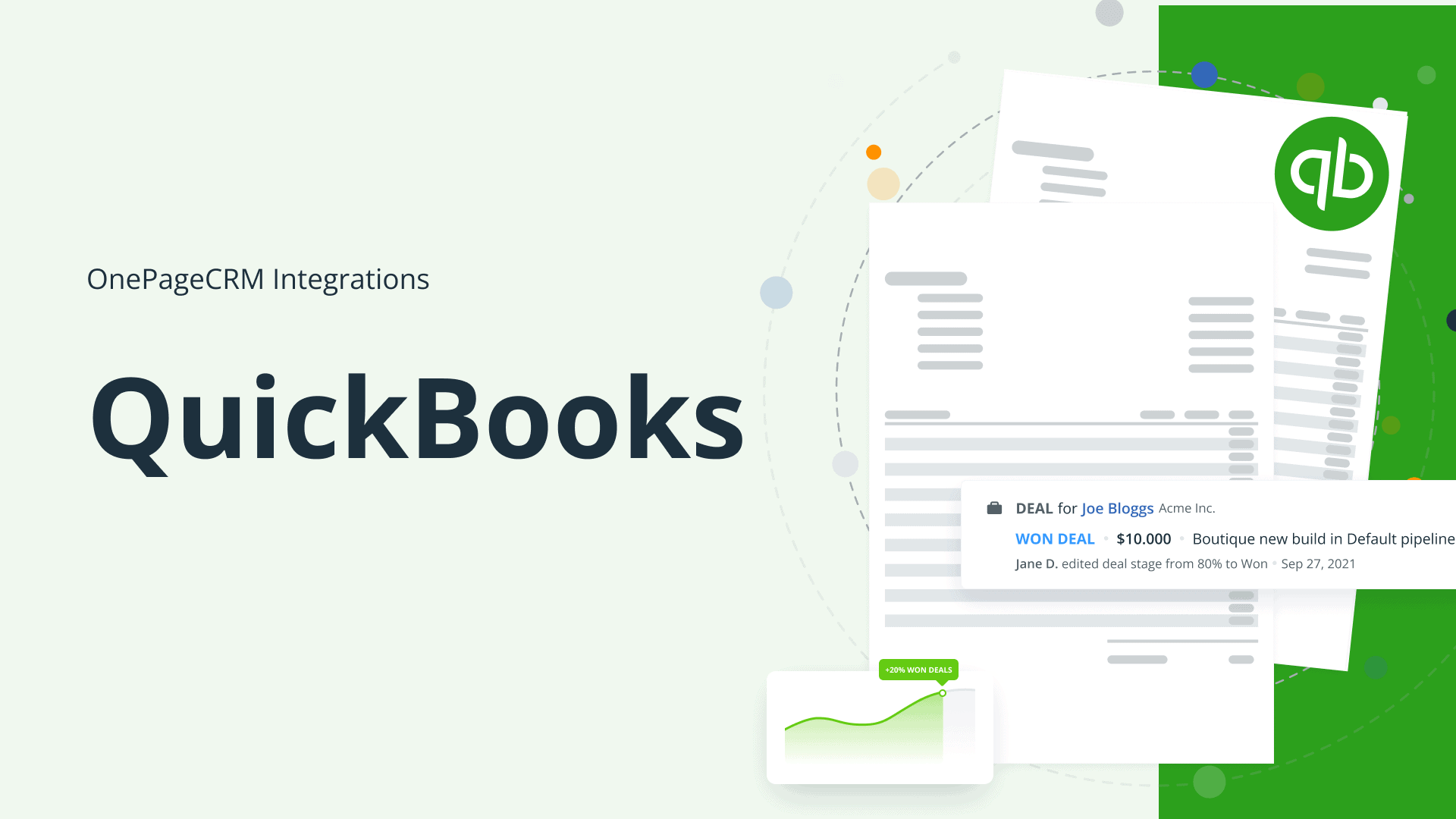Integrating QuickBooks and CRM can be a game-changer for businesses, offering a comprehensive solution that streamlines operations, enhances customer relationships, and drives profitability. This dynamic duo provides a wealth of benefits that empower businesses to thrive in today’s competitive market.
QuickBooks, a robust accounting software, seamlessly manages financial transactions, while CRM (Customer Relationship Management) systems centralize and organize customer data. By integrating these two systems, businesses gain a holistic view of their operations, enabling them to make informed decisions and drive growth.
Introduction

QuickBooks is a popular accounting software that helps businesses manage their finances. CRM (Customer Relationship Management) software helps businesses track and manage their customer interactions. Integrating QuickBooks and CRM can provide businesses with a number of benefits, including:
- Improved financial visibility
- Increased sales productivity
- Better customer service
Many businesses have successfully integrated QuickBooks and CRM. For example, a small business that sells online was able to increase its sales by 15% after integrating QuickBooks and CRM. The business was able to track customer interactions more effectively and identify opportunities to upsell and cross-sell products.
Benefits of Integrating QuickBooks and CRM

Integrating QuickBooks and CRM offers a myriad of advantages that can transform business operations. From enhanced customer relationships to increased profitability, the benefits are undeniable.
Improved Customer Relationship Management
By seamlessly integrating customer data from QuickBooks and CRM, businesses gain a comprehensive view of their customers’ interactions, preferences, and purchase history. This unified view empowers businesses to:
- Personalize customer experiences with tailored communications and offers
- Identify and nurture high-value customers
- Provide exceptional customer service by tracking interactions and resolving issues promptly
Challenges of Integrating QuickBooks and CRM

Integrating QuickBooks and CRM can be a complex and challenging process. There are a number of potential pitfalls that businesses should be aware of before embarking on this integration.One of the biggest challenges is data integration. QuickBooks and CRM systems use different data structures, which can make it difficult to get the two systems to talk to each other.
This can lead to errors and inconsistencies in data, which can be a major headache for businesses.Another challenge is security. QuickBooks and CRM systems store sensitive financial and customer data. It is important to make sure that these systems are integrated in a secure manner to protect this data from unauthorized access.The cost of integration can also be a challenge.
Integrating QuickBooks and CRM can be a time-consuming and expensive process. Businesses need to carefully consider the costs of integration before making a decision.The time and resources required for integration can also be a challenge. Integrating QuickBooks and CRM can be a complex process that requires a significant investment of time and resources.
Businesses need to make sure that they have the resources available to complete the integration successfully.Finally, user adoption can also be a challenge. Getting users to adopt a new integrated system can be difficult. Businesses need to make sure that they have a plan in place to train users and get them up to speed on the new system.
Best Practices for Integrating QuickBooks and CRM
Integrating QuickBooks and CRM can provide numerous benefits for businesses. However, it is important to follow best practices to ensure a successful integration. Here are some key considerations:
Proper planning, careful implementation, and ongoing monitoring are essential for a successful integration. By following these best practices, businesses can maximize the benefits of integrating QuickBooks and CRM.
Choose the Right Integration Solution
There are various integration solutions available, each with its own strengths and weaknesses. Businesses should carefully evaluate their needs and select a solution that meets their specific requirements. Factors to consider include:
- Features and functionality
- Ease of use
- Cost
- Support
Plan for a Successful Integration
Before implementing the integration, it is important to develop a detailed plan. This plan should include:
- A clear understanding of the business goals for the integration
- A timeline for the integration
- A budget for the integration
- A team of responsible for the integration
Implement the Integration Carefully
Once the plan is in place, the integration can be implemented. It is important to follow the vendor’s instructions carefully and to test the integration thoroughly before going live.
Monitor the Integration and Make Adjustments as Needed
Once the integration is live, it is important to monitor it closely and make adjustments as needed. This includes:
- Monitoring the data flow between QuickBooks and CRM
- Testing the integration regularly
- Making changes to the integration as needed
Case Studies of Successful QuickBooks and CRM Integrations
Numerous businesses have successfully integrated QuickBooks and CRM to enhance their operations and drive growth. Here are some notable case studies:
Case Study: Acme Corporation
Acme Corporation, a leading manufacturing company, integrated QuickBooks with Salesforce CRM. The integration enabled Acme to:
- Automate order processing and invoicing
- Gain real-time visibility into customer data
- Improve customer service and sales productivity
Case Study: XYZ Retail, Quickbooks and crm
XYZ Retail, a multi-location retailer, integrated QuickBooks with Microsoft Dynamics CRM. The integration allowed XYZ to:
- Synchronize inventory levels across multiple stores
- Track customer purchase history and preferences
- Personalize marketing campaigns based on customer data
Final Thoughts
In conclusion, QuickBooks and CRM integration is an investment in business efficiency and customer satisfaction. By leveraging the power of these tools, businesses can optimize their operations, increase sales, improve customer relationships, and ultimately achieve long-term success.